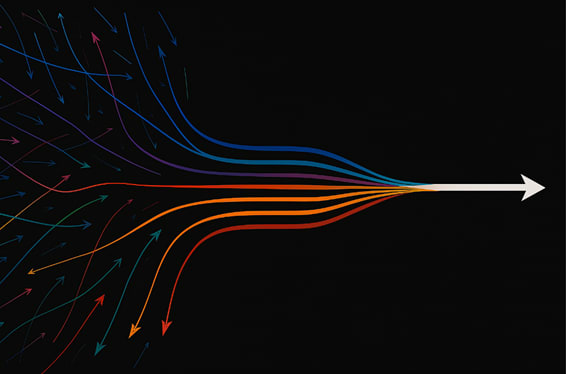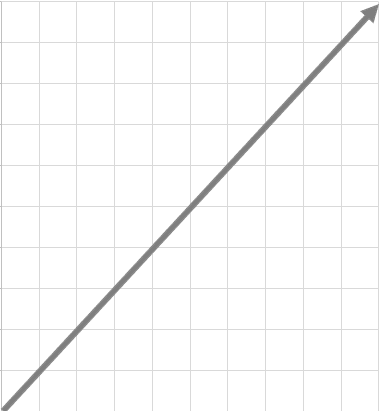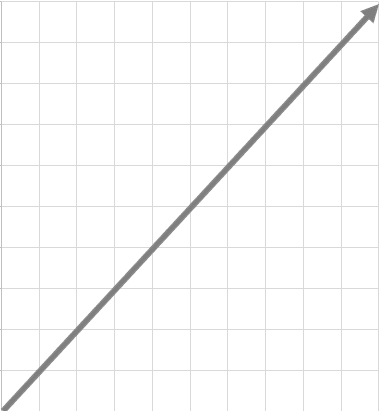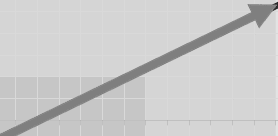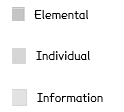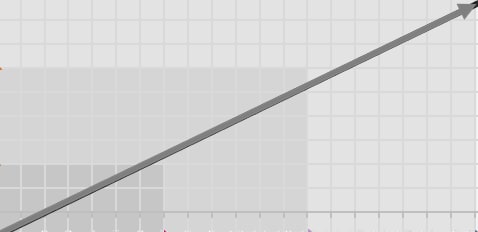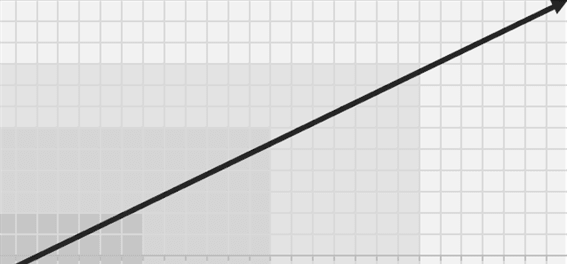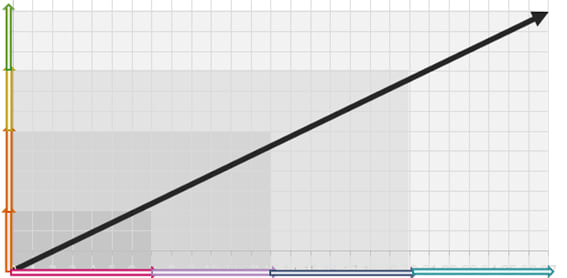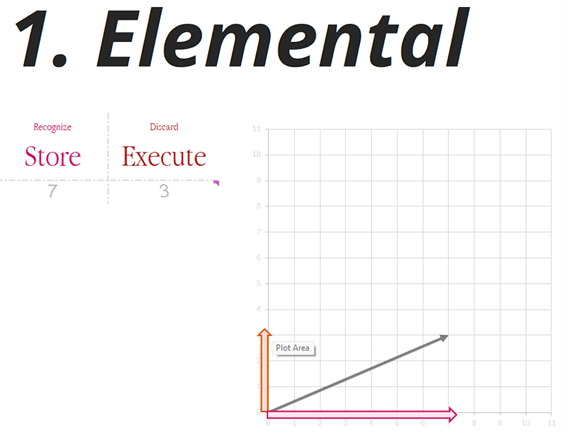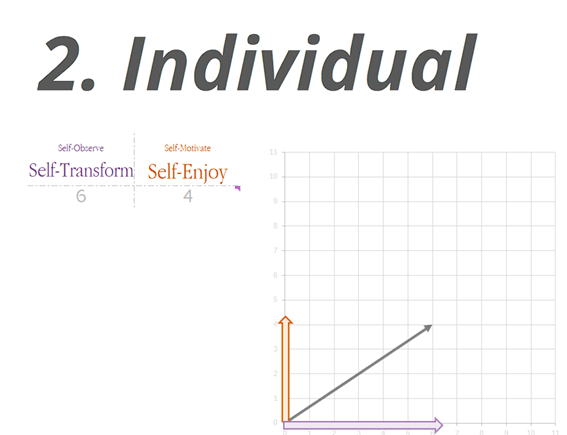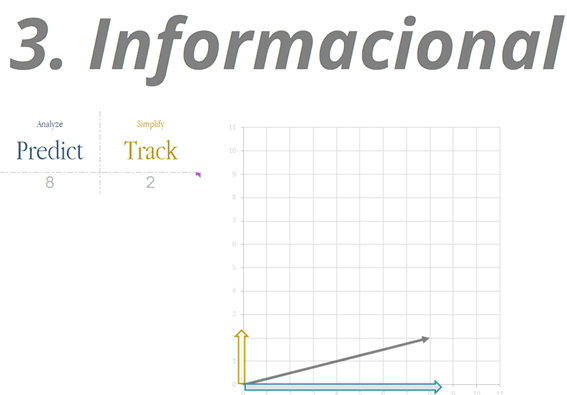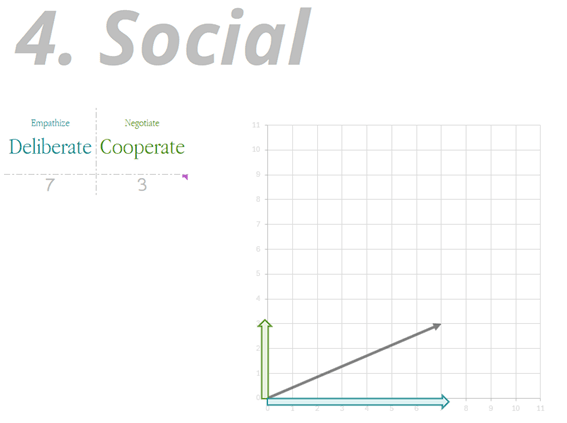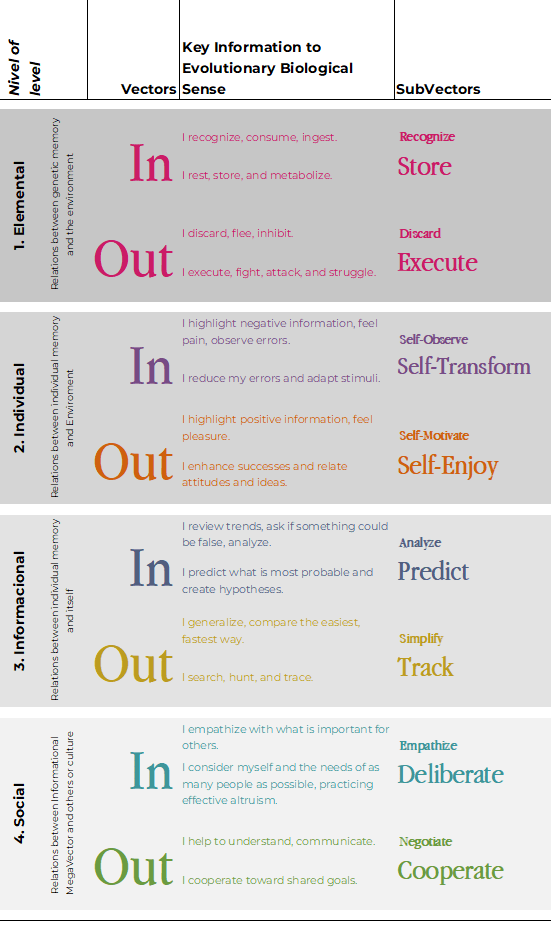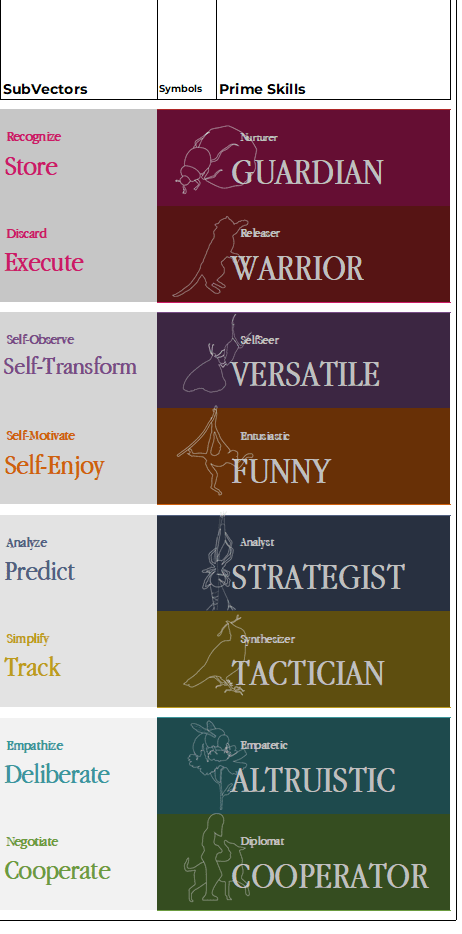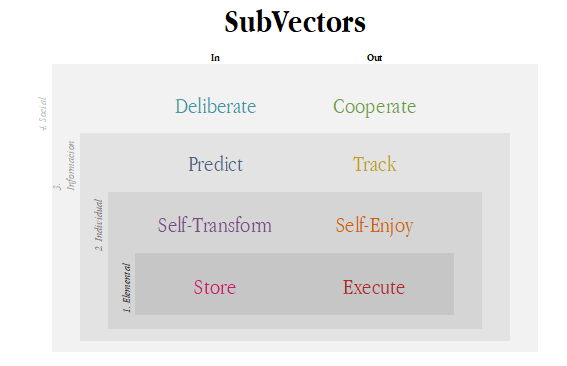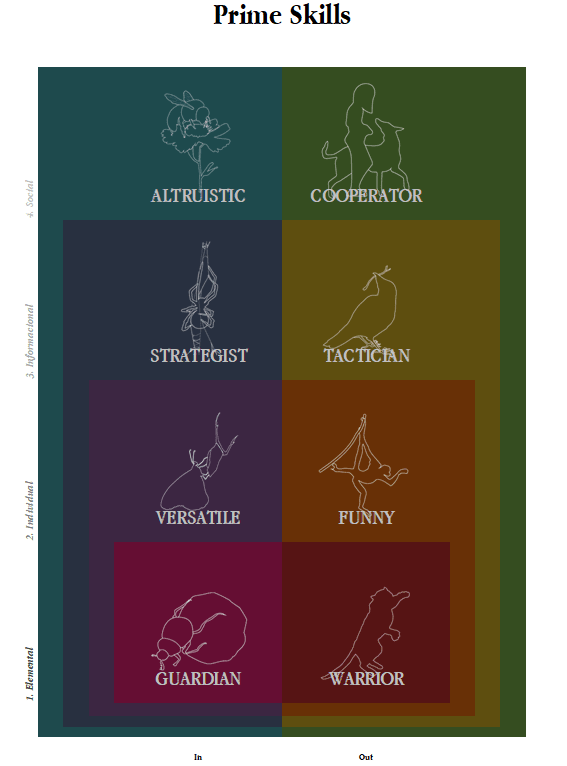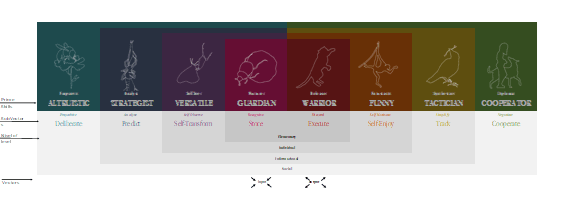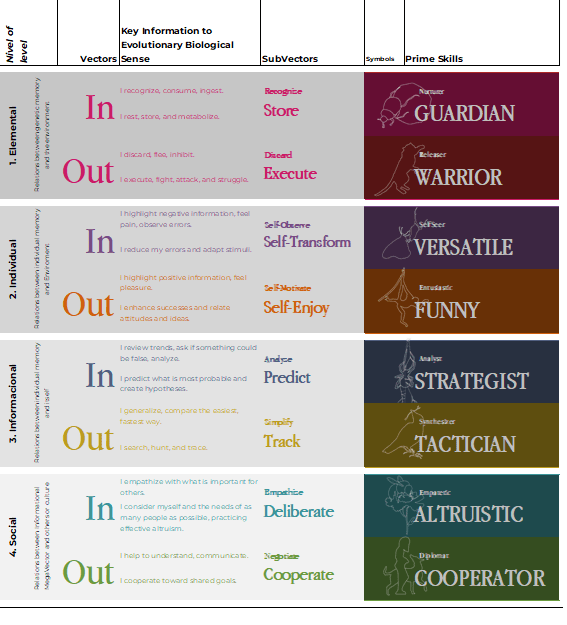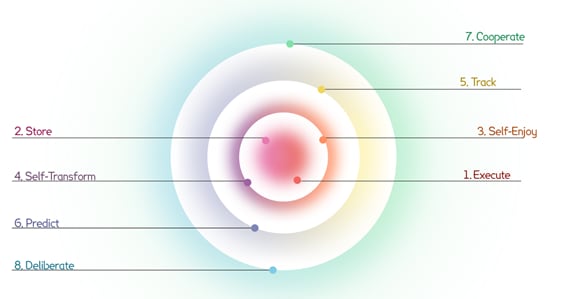Published on April 16, 2025 4:53 PM GMT
We experience phenomena that, although they have a measurable substrate – such as microstates in thermodynamic systems – emerge in forms that go beyond the simple sum of their parts. This document proposes an analytical tool that utilizes thermodynamic concepts to examine human processes, starting from the hypothesis that it is possible to “break down” a human being into a set of variables.
It is important to emphasize that the objective of this framework is not to establish a comparative scale between individuals, but rather a scale for personal evolution: a way to answer the question, “Am I better than I was yesterday, and why?” When adopting binary distinctions (such as internal versus external, or species versus individual) as analytical instruments, we acknowledge that in practice these boundaries blend and interact, reflecting the complex nature of human experience.
Of course, one cannot reduce one’s life entirely to an empirical objective. But could we allow a slightly more accurate metaphor to enable more significant personal discoveries?
THE UNIVERSAL GOAL MICROSTATES/INFORMATION
Is there a more universal variable in a human being?
In the realm of thermodynamics, the universe tends to lose heat and increase its entropy – that is, to expand its number of microstates. One more microstate equates to the highest possible amount of information in the universe.
For the purpose of this model, “information” is defined as the resulting complexity for the universe, not as order/disorder. In the same way that disorder does not exist in itself—but rather as the absence of order, just as a shadow is not a thing but the absence of light.
If we define a human being as a complex system of the universe, the larger the number of microstates, the greater the amount of information that the human being would have.
This combination of information – illustrated by the gray arrow in the figure above – represents the effort to integrate, organize, and give meaning to many variables that, by themselves, could become an overwhelmingly complex system.
However, due to the multiplicity of variables, extracting useful information can be a challenge. Therefore, it may be interesting to look for questions to reduce the variables in this system, get more organized and updated.
Due to the multiplicity of variables, however, extracting useful information can be challenging. It might be interesting then to seek guiding questions to reduce the number of variables in this system, to organize and update oneself. In this way, we have an objective, a universal vector of information combination.
If it is difficult to visualize the universe as just a passive system, imagine it as an entity that seeks to combine information. In this scenario, the human being is configured as the most refined tool known for combining information – a metaphor that, albeit simplified, provides a parameter for motivation and understanding the proposed process.
THE 4 RELATED QUESTIONS
Which question could break down the universal vector of human complexity into two factors?
Starting from the universal vector of information combination, we need questions that decompose the vector and weight it in terms of the probability of each level of combining information. Note that these are probabilistic questions relative to comparing the individual with oneself, not with others – a self-assessment rather than a comparison between individuals.
1. Focus on the environment or on oneself?
n any system, actions can alter both the system itself (input) and its surroundings (output). This distinction can break down the universal vector by determining the focus chosen when evaluating an objective, routine, or task.
For instance, the act of eating tends to provoke more internal changes (by generating energy and altering one’s context) than the act of hunting, which, although also complex, might be seen as more oriented towards external transformation.
This leads to the question:
“At this moment, is my focus on transforming myself or on modifying my environment?”
Although these changes occur simultaneously in practice – since changing oneself often alters the environment and vice versa – identifying the predominant focus can be fundamental to guide analysis and action.
Thus, the universal objective of combining information splits into two vectors:
Internalization: Focused on personal change (represented by black arrows).
Externalization: Geared towards altering the surrounding environment (represented by white arrows).
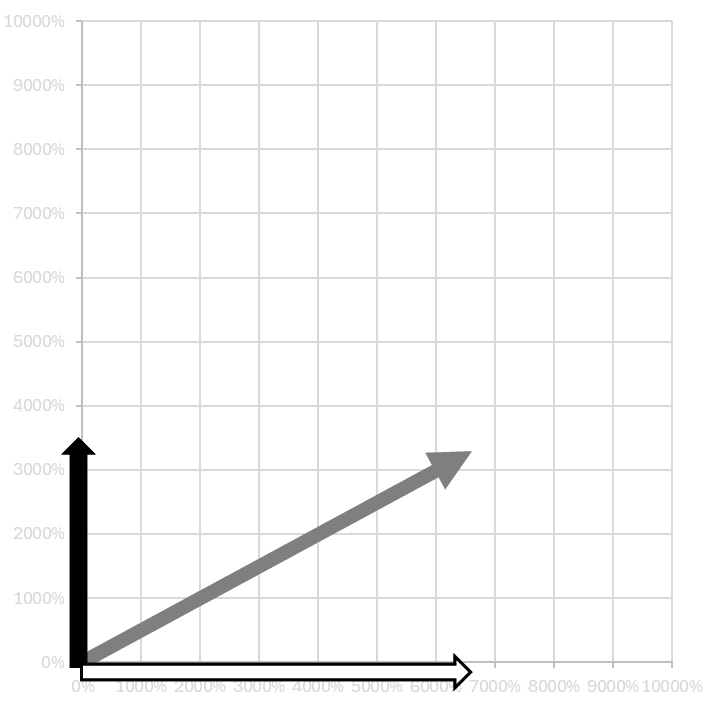
Represented below by the black and white arrows.
2. Elemental or individual?
Universal Vector
Re-examining the universal vector, we then ask if the focus is more on combinations of elemental information (physiological/genetic/epigenetic) with the environment, or on individual-specific information, i.e., one's personal memory.
In other words, the question would be:
“At this moment, is my focus more on elemental interactions with the environment, or on personal (individual) information?”
For example, the act of eating might be interpreted as behavior aligning largely with the common objectives of the species – system maintenance at a genetic level – while more artistic actions, like singing, could be linked to an expression of personal and subjective nuances.
Then we can level the universal vector into two levels, as below:

3. Individual or informational?
Within the realm of individual information combinations, we can define another layer in which the objective is to combine personal memories and information. The question here becomes:
“Is my focus at this moment more on interrelating my own information or on establishing relationships between myself and the environment?”
For example, when studying mathematics, the focus might be more on combining information, whereas when singing it might be on personal expression.
Then we can level into two more 3 areas the universal vector, as below:
4. Informational or social?
Finally, within the “informational” category we further differentiate whether the focus is on combining pieces of information internally or on communicating that information and relating to other complex individuals.
The corresponding question becomes:
“At this moment, is my focus more on generating information or on cooperating?”
For instance, when speaking with one’s boss, the focus might lean more towards relating with another complex being than merely on information synthesis.
Then we can level out in two more 4 areas the universal goal, as below:
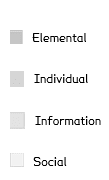
HUMAN FUNCTIONS AND SKILLS
We began with the universal objective of combining useful information. We decomposed this “vector” into two focuses: input and output, and into the four areas above. Considering that each level can be broken down into its own vectors, we arrive at 8 sub-vectors or 8 sub-objectives—as illustrated in the figure below.
Considering that each level can be decomposed its vectors, we have 8 subvectors or 8 subobjectives as shown in the figure below:
Names are given to these sub-objectives along with a corresponding score to be applied in one’s life. It is important to note that these metrics are self-assessments and inherently subjective. The numbers are used as relative references (for example, “Compared to my last month, or comparing specific moments: am I more focused on X?”). The labels serve as metaphors rather than strict scientific definitions. For instance, at the elemental level, one might aim to be more receptive or more active – focusing on eating well or exercising might be reflective of such contrasts. As below:
To confirm the meaning of the levels, we can also see some relationships with evolutionary psychology, as follows:
And we can name related skills needed for these goals, and illustrate with some totems, insects for indoor skills, animals for outdoor skills, cool colors for indoor skills, warm colors for outdoor skills: As figure bellow:
Another way to look at the process as sets, to analyze personal priorities as in the example below:
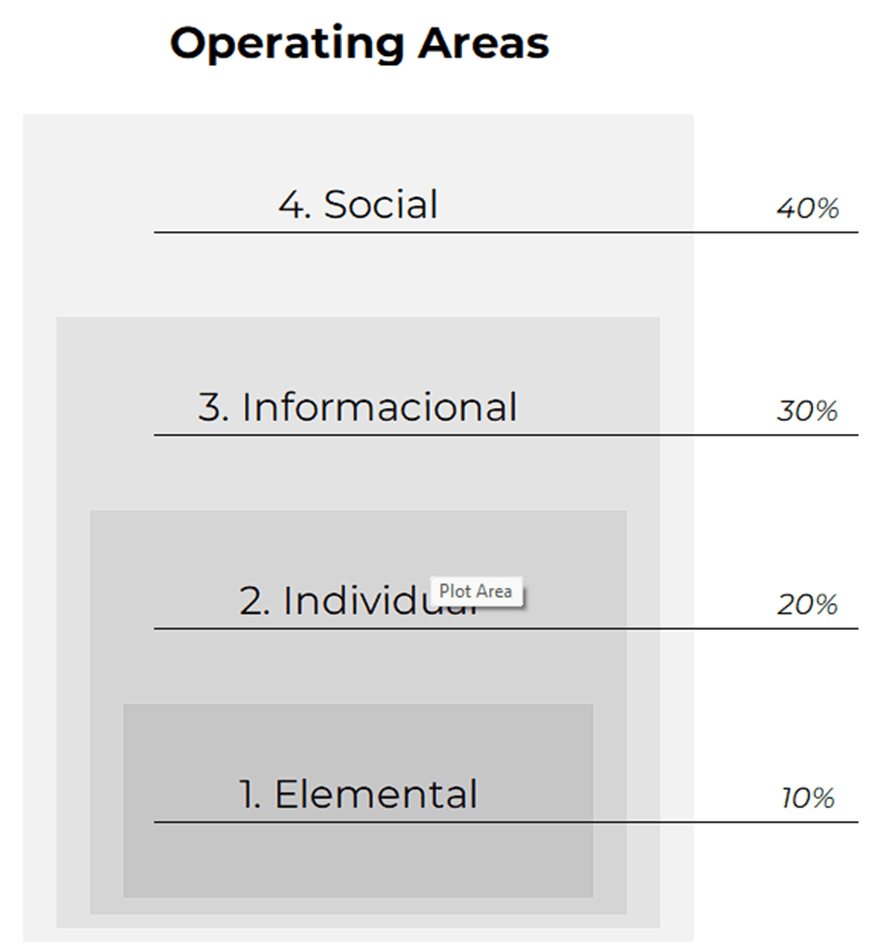
And a final summary table:
RESULTS:
With these parameters, one can formulate questions for special moments in life to help organize events, routines, and tasks. This approach comes closer to the atomic model where, even though we might not precisely pinpoint an electron’s layer, through specific questions we can predict which area our focus lies in. As the diagram below shows:
Thus, having a slightly more accurate assessment of objectives, routines and tasks. In addition to making a more accurate diary template like the one proposed here.
CONCLUSIONS
We have thus defined probabilistic skills. The apparent dichotomy serves as an analytical tool rather than an absolute division. In practice, these categories merge—indeed, by affirming that “by changing oneself one changes the environment.”
Discuss

